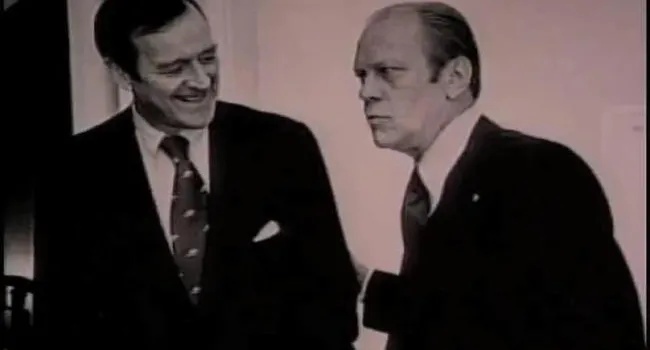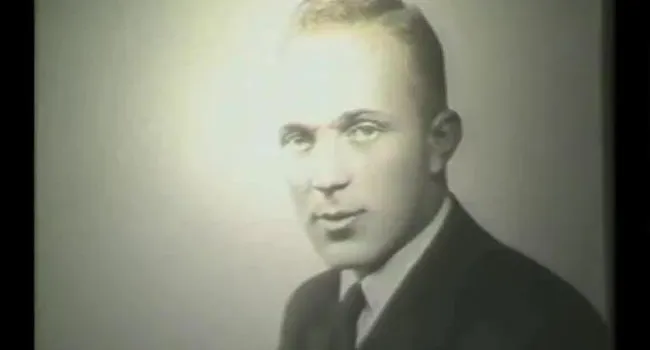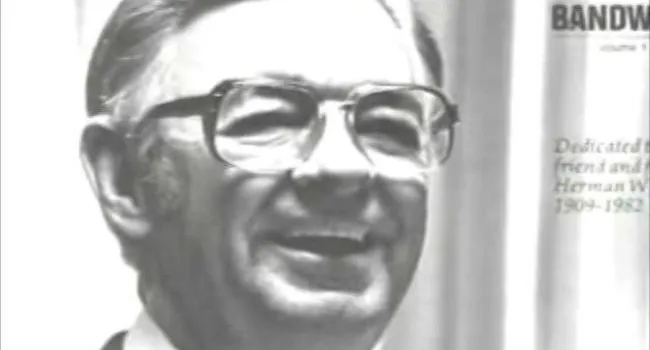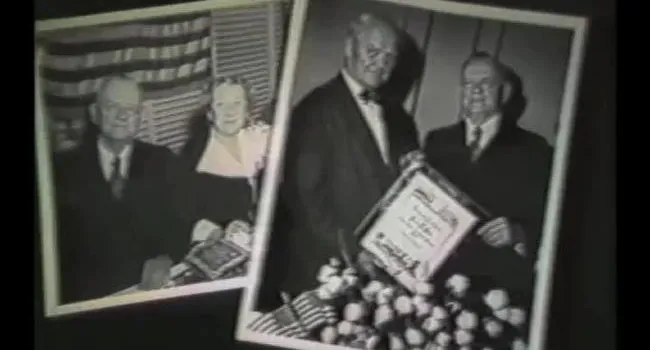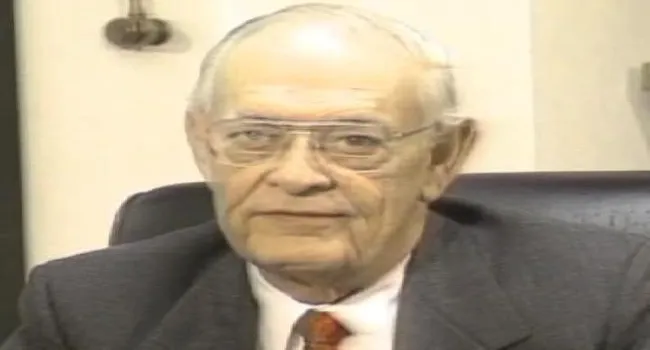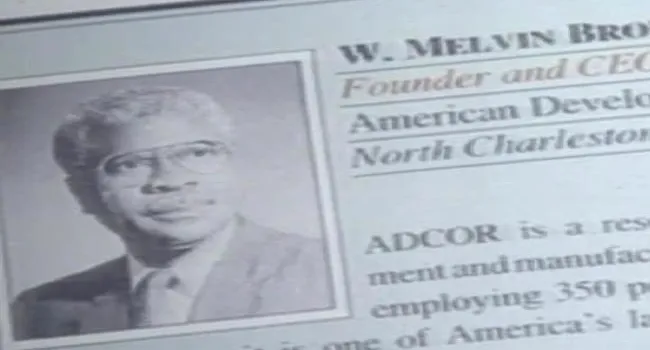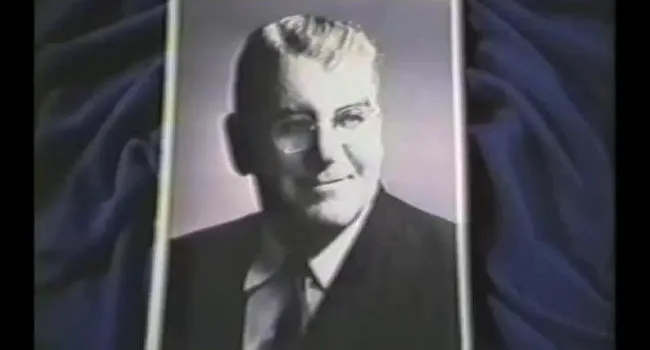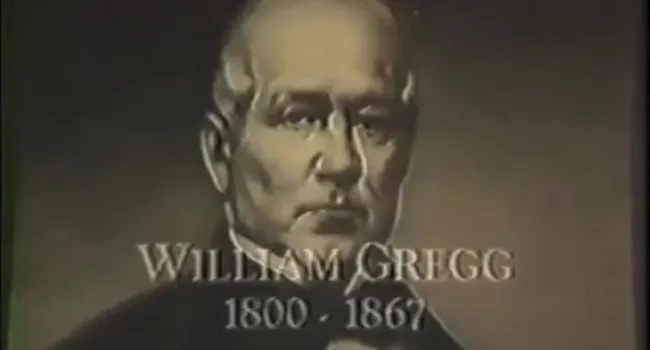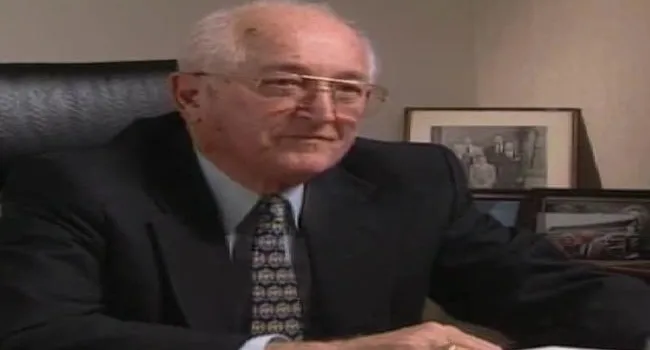John M. Hamrick (1913-2005)
Few people have a better understanding of the economics of American industry, particularly textile manufacturing, than John M. Hamrick, chairman of Hamrick Mills, Inc., of Gaffney. Today, as in years past, whenever the textile industry faces a challenge, both manufacturers and association executives seek his counsel.
As a former president of the South Carolina Textile Manufacturers Association and the American Textile Manufacturers Institute and director of the National Association of Manufacturers, he's referred to as a "businessman's businessman" and a "leader's leader."
John Martin Hamrick was born July 1, 1913, in Gaffney, the son of Waite C. and Florence Martin Hamrick of Chattanooga, Tennessee. He was the second of five children. His brother Waite was the eldest, and following John were Charles, Florence Hamrick Reaves, and a half-sister, Mary Waite Hamrick McLeod.
Hamrick attended the public schools of Gaffney and graduated from Gaffney High School, earning a letter as a tennis player. He enrolled at Duke University, where he was treasurer of his senior class, a member of the Duke golf team, and manager of the football team during his senior year. He graduated in 1934.
After graduation, Hamrick went to work in the executive office of the five-plant Hamrick Mills, which was founded in 1900 by his grandfather, Dr. W. C. Hamrick. A North Carolina native, Dr. Hamrick had become disillusioned with medicine and established retail businesses, first in North Carolina and then in South Carolina. Later still, he became involved in textile manufacturing.
When World War II was declared, textiles became an essential industry, and throughout the war years, 100 percent of Hamrick Mills' production supplied the war effort.
Although Hamrick registered for the military draft, he was not called. He and others not drafted were involved in numerous war support efforts, such as selling war bonds, operating the ration boards, and conducting scrap metal drives.
When the war ended, family members decided to sell the Limestone Plant and the original Hamrick Plant, close a third, and concentrate their efforts and financial resources on modernizing the remaining two. Textile equipment in those two plants has been constantly upgraded through the years, keeping them competitive in an ever-changing textile market.
Early in his textile career, John Hamrick began an effort to improve conditions for young people and the mill village residents. He formed athletic teams, involved the youth in scouting, and built clubhouses. He also served as scoutmaster for the Salvation Army troop.
His involvement in scouting continued for years. He was a longtime member of the Regional Executive Committee of the Boy Scouts of America, and received the Silver Beaver, Silver Antelope, and Good Shepherd awards.
Hamrick also helped establish the Gaffney Junior Chamber of Commerce in 1941. He served as president of the Gaffney Jaycees and, in 1947, served as president of the South Carolina Jaycees. He was national vice president of the Jaycees in 1949 and in 1950 a "reluctant candidate" for national Jaycee president. He lost by 50 votes.
He accepted his defeat as "providential," since back in Gaffney he was appointed chairman of a committee that planned a new sanctuary for the First Baptist Church. His grandfather, Dr. Hamrick, had been chairman of the building committee that had planned construction of the original church in 1898.
Hamrick served his church as assistant Sunday school superintendent and chairman of the board of deacons. He is a life deacon.
Hamrick continues to serve as a director of the American Textile Manufacturers Institute, Textile Hall Corporation, the Institute of Textile Technology, and the J. E. Sirrine Foundation. He is a former director of the National Cotton Council and the Cherokee County Chamber of Commerce, which inducted him into the Cherokee County Hall of Fame in 1992. He is also a past president of the Gaffney Rotary Club.
A former chairman of the Duke University Hospital Advisory Board, Hamrick received a Distinguished Service Award from the Duke Medical School Alumni in 1998 for his years of service. He is a former member of the Clemson University Board of Visitors and a former chairman of the Limestone College Board of Trustees. Limestone awarded him an honorary doctoral degree in 1974.
Hamrick chairs the family's Fullerton Foundation, which mainly supports health-related activities and awards eight scholarships each year to medical school students who demonstrate an interest in community service. Named for the late W. B. Fullerton, an uncle by marriage and a longtime Hamrick Mills executive, the foundation has more than $40 million in assets.
On August 1, 1936, Hamrick married Mary Elizabeth Hartzog, a native of Allendale and a graduate of Limestone College. They had a daughter and three sons, Mrs. Robert (Jean) Haas, John M., Jr., W. Carlisle, and Charles F. II. He and his wife, Mary Lib, were together nearly 53 years before she died July 23, 1989.
On December 6, 1995, he married Betty Simmons Wornall of Charlotte. They maintain homes in Gaffney, Charlotte, and Linville, North Carolina.
He entered the South Carolina Business Hall of Fame in 1997.
© 1999 South Carolina Business Hall of Fame












